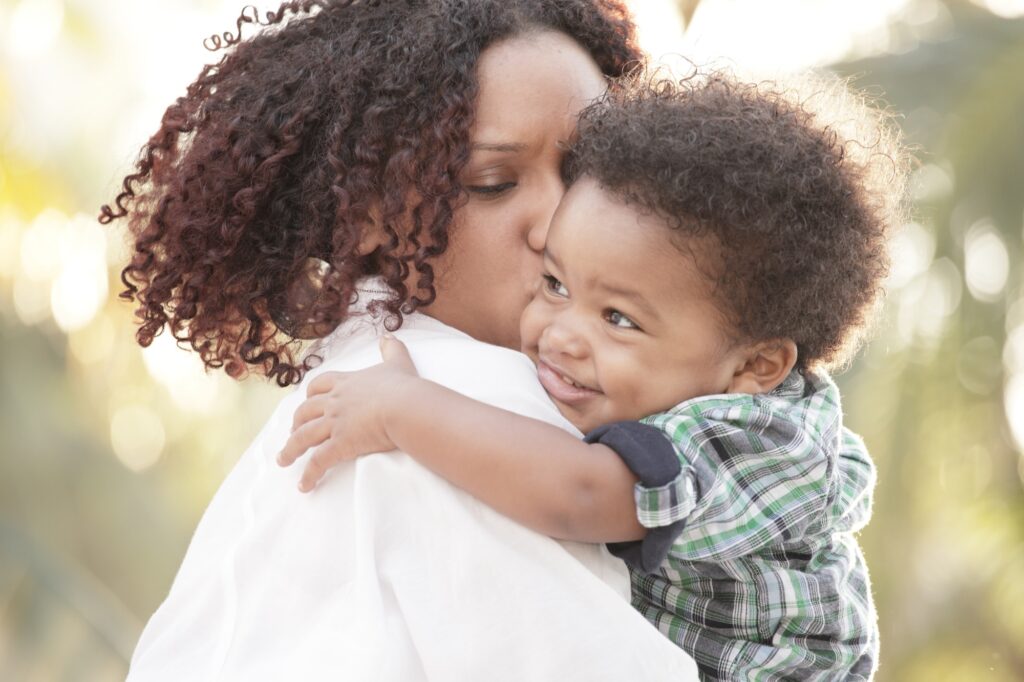Learning to Trust Your Instincts
Throughout my first pregnancy and into early motherhood, I read ALL the books. Everything from the mainstream What to Expect series and the entire Sears Parenting library to obscure books on midwifery and Jean Liedloff’s The Continuum Concept.

What was I looking for?
I’m analytical (and was pretty high strung back then), so I was looking for data… proof… enough evidence to definitively show that there was a right way to give birth to and raise a child.
I guess you could say I was heavily invested in finding a foolproof way to raise a healthy, happy, well-adjusted human.
Did I find it?
Well, while I certainly found inspiration from each author, mostly I was left feeling that the current book’s advice contradicted the book before. I also realized some of them made me feel like I was doing it wrong.
Fast forward to me trying to perfectly raise a baby. Were the dozen parenting books on my nightstand drowning out the inner voice that should have been clueing me in to what my son needed now?
The overwhelm of those books led to an aha moment. I decided to withdraw myself from the landslide of external input and tune into my instincts.
What a relief that was. The frantic worries of “what does the book say?!” melted away, and I was left with a sense of calm. Granted, that calm was often interrupted by my own lack of confidence and those anxious hormones of new motherhood. But I was generally able to bring myself back.
It took a little while to be able to trust the hints and nudges I was getting in those quiet moments. But, like meditation, the more you do it, the clearer the messages get.
When you trust your instincts, it doesn’t mean you never seek external advice
There’s no place for willful ignorance in life or in parenting.
Trusting my instincts doesn’t mean I never seek advice anymore. But now I know to do a gut check with what I’ve read or been told. And I make sure my kids remember to connect to their own inner knowing.
As a mother, you are the emotional thermostat of your home. When you are content, a peaceful energy flows out to your family and wraps them up in your nurturing, encouraging, unconditional love. It sounds cheesy, but it’s true. Your contentment is contagious. And so is your chaos.
Several factors go into our ability to harness peaceful energy.
Build your support network
Generally the people giving you new parent advice mean well. But they can actually sabotage your confidence as a new parent. By no means should you isolate yourself—that’s a whole other recipe for disaster—but you’ll want to be extremely selective about who you allow into your circle.
Support from a partner, family member, friend, or paid help is essential.
Finding a support network with like-minded new parents can make a real and lasting difference. If you can’t find an existing group through word or mouth or online, here’s how you can build your community. I’ve seen so many helpful, insightful posts on social media about attachment parenting, breastfeeding, non-commercialism, safe toys, and organic foods.
Don’t fall into the “stuff” trap
The swing, pack & play, the crib with the ankle monitor. You weave through the house tripping over toys designed to make your newborn smarter.
I’m a fan of several great baby gear products, but overall, consumerism tries to convince us (and we as nervous moms and dads-to-be, or sleep deprived new parents are so desperate to believe) that if we have enough stuff, we’ll be equipped to handle the challenge of a new baby.
Or that having these “things” will make us a good parent.
And if it’s not the companies that want to sell us something, it may be well-meaning family members and friends. As new parents, we were often told, “Put that baby on a feeding schedule.” Or we’re asked, “Are they sleeping through the night?” and my favorite, “What does the doctor say about that?”
Use Attachment Parenting if it feels right
When my second son was born, I was exceptionally blessed to have a network of friends who supported me during the early months of breastfeeding and attachment parenting.
It still wasn’t easy.
After one of those first rough nights home with a newborn, my husband and I told our lactation consultant we were really hoping this baby would learn to sleep on his own and become independent faster than his older brother had. I can still see her face as she considered her words carefully before responding to two severely sleep-deprived people. Then she said, “But your oldest is such a gracious and content child. It’s no accident how he became that way.”
Hearing that from someone with an extensive background in birth, nursing, and child development —while we really wanted a magic solution — was actually an affirmation.
She told us we were instinctively raising our oldest with attachment parenting principles. We didn’t know it had a name. She explained how he didn’t have to waste his energy crying and worrying whether his needs would be met. He was able to go about the process of adapting and growing. She also gave us the resources to back it up.
Don’t open yourself to too much advice
Recently in a natural parenting group, a mom posted a concern about her two-year-old daughter’s lack of verbal skills. Dozens of people responded with encouraging comments about how every child develops at their own pace. One mother said, “You know your child. If you feel like something’s off, it’s best to catch it now.” She then offered advice on how to get an evaluation for a child that age.
I struggled with how to assimilate all the advice she got, and it’s not even my child. You have to set a boundary between seeking advice and adding more conflicting opinions and stress to your life. New parents can be plugged in at all hours of the day or night… but access to ALL of that advice can easily pile on the anxiety.
“The problem is that in our busy lives today, we don’t really make time to get to know the mother within,” says Yaffa Maritz, founder of The Community of Mindful Parenting. “The mother within is a wise woman. We all carry with us generations and generations of instinctive mothering.”
That’s a powerful thought. You carry generations of instinctive mothering within you. Your job is to bring it forth, instead of letting it be drowned out by the opinions of others.
Make time for self-care
This is where Caitlin’s guide to the first six weeks postpartum is a lifeline. You don’t have to drive across town for a meditation class. She offers tiny ways to squeeze in something for YOU even in the first week. And if you can start that early, you’re more likely to keep it up throughout your parenthood journey.
Time to yourself can help regulate your nervous system. A body not constantly in fight or flight and a calmer, quiet mind make for a likelihood of being able to listen to your gut.
And for the sake of yourself and everyone in your home, prioritize your sleep. My dear friend Peggy O’Mara, advocate of parents for 50 years now, says that the worst decisions parents make are usually due to sleep deprivation.
Take what feels natural to you from these ideas. What matters is that you find your own path to your inner wisdom. Know that I’m cheering you on and feel free to ask questions in the comments!

